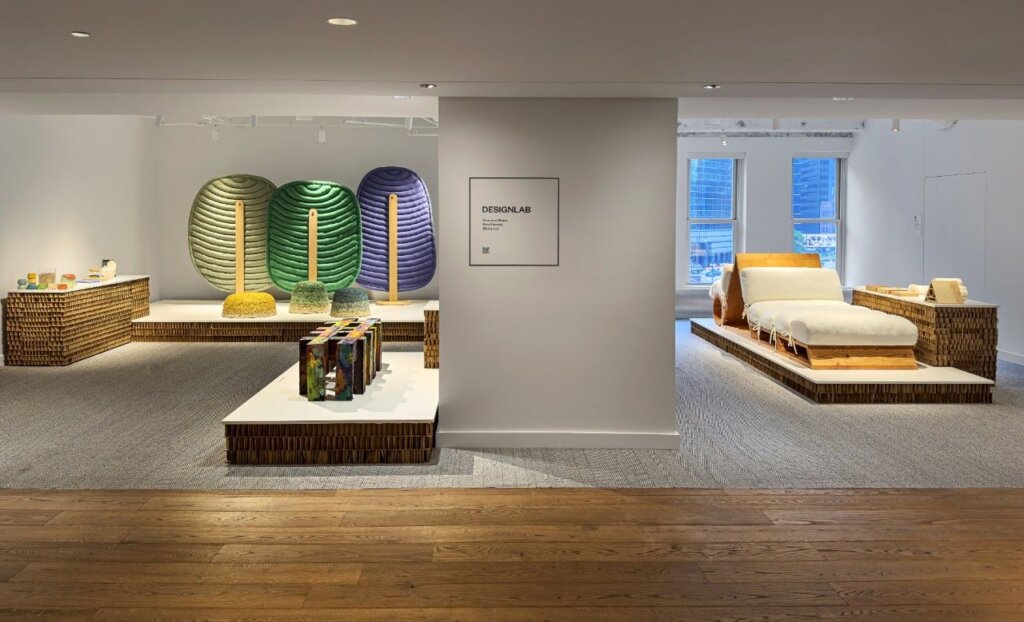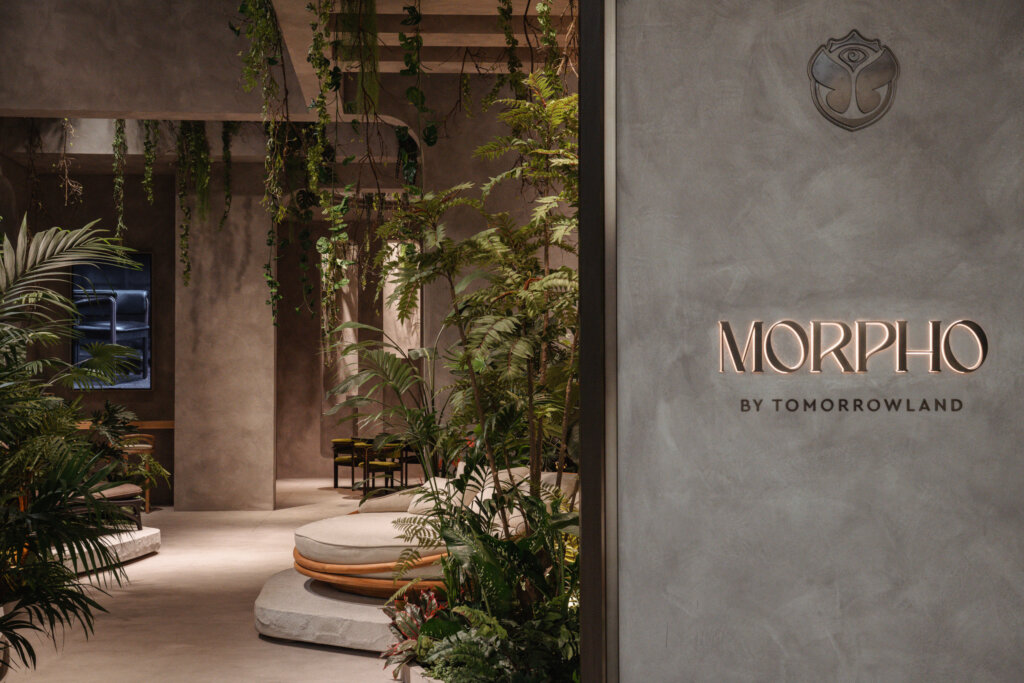
Held during ICFF 2024, The How and Why of Becoming B-Corp Certified panel discussion brought together first-hand perspectives from three distinct practices: Upstate New York marketplace Minna helmed by Sara Berks, London-based lighting brand Tala co-founded by Josh Ward, and Washington D.C. architecture firm //3877 partnered by David Shove-Brown. Moderated by Metropolis Magazine Editor-in-Chief Avi Rajagopal, the conversation revealed how gaining and maintaining B-Corp certification englobes much more than simply achieving sustainability through reconsidered material selection. As Berks, Ward, and Shove-Brown explained, this rubric of sorts stems from a more holistic and well-rounded suite of guiding principles.
Established in 2006 by non-for-profit B Lab, B Corporation or simply B Corp is a point-based certification conferred to for-profit companies that meet multiple assessed standards, mostly centered on social and environmental performance. A recipient must uphold commitments to stakeholders in its company governing documents (essentially the claims it puts into writing from the outset), maintain transparency, and recertify every three years to retain the status.
Within design and architecture, this designation aligns well with an ever-growing ambition to produce better and more controlled outcomes and ensure the just treatment of all stakeholders involved while also safeguarding the end user.
B Corp as a game changer in lighting, retail, and architecture
Tala co-founder Josh Ward: “We launched the brand in 2015 with the premise of helping to accelerate the low carbon economy. We were primarily focused on energy efficiency. At the time, only about 4% of households were using LEDs which has obviously shifted a huge amount now to more holistic measurements: quality, health, and wellbeing; our value chain and what impacts the products we’re making. We recently pledged to only use 100% waste stream materials. For us, B Corp was a good way to look more holistically at our company, both the products and how we operate as a team. We got certified last March.”
Minna founder Sara Berks: “I started Minna with the aim of working with artisan groups throughout Latin America to produce handmade textiles. It was important for me to find partners that really believed in textile development and innovation as well as make sure that they were fairly and ethically paid. Becoming a B Corp was always a goal of mine. We began our certification process in 2019 and got certified in 2021.”
//3877 partner David Shove-Brown: “For us, gaining B Corp certification in 2020 was about the complete process. We felt that it was the way to look at ourselves and say, are we really doing what we say we’re doing. As a design practice with 40 people, we’re not necessarily creating products. We’re more about providing a service and creating relationships with our vast network. It’s vital to find partners that share the same values.
B Corp as means to better collaborations
Ward: “Being a B Corp is a good communication tool to factory partners. They know that we’re a serious partner and committed to the development process that can be quite long.”
Berks: “When we went through the certification process, the two tracks that we were put on were around sustainable employment and ethical employment. Our goal was to ensure that our artisan partners are paid above living wage and bring their indigenous textile techniques to a wider market. B Corp gives us that framework to continually improve and think about what we can do better and not just be a pat on the back.”
B Corp as means to constant improvement
Shove-Brown: “B Corp certification I think is a little bit of a misnomer in that it’s not the end goal. It’s part of the process. We’re allowed to craft our own descriptions of what we’re doing and how we’re doing it, trying to add a bit more robust quality to some of the language and clarify our thoughts and feelings with the right words.”
Ward: “The natural tendency is to focus on sustainability, the product side. We’ve found it helpful as a framework over the next five years, to look at other sides of the equation, all of our holistic values. We feel like we’ve only just started in that sense.”
Metropolis Magazine Editor-in-Chief Avi Rajagopal: “We’re used to the idea of continuous improvement in other areas like profit margins, but we don’t think about continuous improvement in sustainability. We think of it as a kind of burden. It’s almost like we’re picking off the symptoms one by one, but never actually treating the underlying condition. B Corp is pretty much the only certification I know of that is about the underlying condition, which is how we operate in the world and how we do business. I think the sustainability, the carbon benefits, the human benefits, the social benefits are all kinds of outcomes of that. It’s a fundamental insight that helps us determine who we want to do business with and how we want to do business with them.





